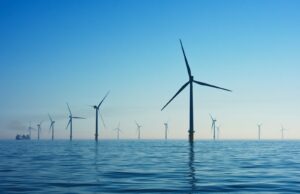An independent body should help to lead Britain’s transition to net-zero, says Ofgem.
Last month the government committed to consult on reviewing the management of the energy system, it acknowledged that any additional responsibilities may require greater independence from the National Grid, which has managed the energy system since privatisation.
Ofgem, who will work closely with the government in its review, has estimated that an independent body with new responsibilities for running the electricity system could save consumers £0.4 – £4.8 billion between 2022 and 2050.
The body would be fully separate from the National Grid and run the electricity system, helping to charge millions of electric vehicles and enabling a huge increase in renewable power while maintaining secure energy supplies.
Its new responsibilities would include taking a more active role in designing and planning new grid infrastructure and providing independent advice to the UK Government on how best to hit its target of net zero emissions by 2050.
This body would be fully separated from the National Grid, which also owns the electricity transmission network, to avoid any potential conflict of interest.
Given the scale of the net-zero challenge, Ofgem has recommended that the government goes further and considers full separation. This would help to ensure that future decision on how to manage the energy system are taken in the interests of consumers, helping to keep costs as low as possible.
Jonathan Brearley, chief executive of Ofgem, said: ‘The energy system needs to go undergo the biggest transformation in over a century to meet Britain’s ambitious climate goals.
‘Ofgem is recommending the creation of an independent body to help deliver the fundamental changes in how we use energy.
‘This would help bring forward green economic growth, accelerate our journey towards net-zero and save consumers money on their energy bills.’
Kwasi Kwarteng, business and energy secretary, said: ‘As the first major economy to commit in law to net-zero carbon emissions by 2050, the UK is leading the green industrial revolution.
‘Meeting our far-reaching targets will mean changes to how we turn the lights on, travel to work and even cook our meals. Which is why we must ensure that the energy system is designed to provide the very best for consumers and allows energy companies to keep innovating as we build back greener.
‘I welcome Ofgem’s contribution to the debate over the future structure of our energy system and will consider its recommendations thoroughly.’
Photo Credit – Pixabay
















